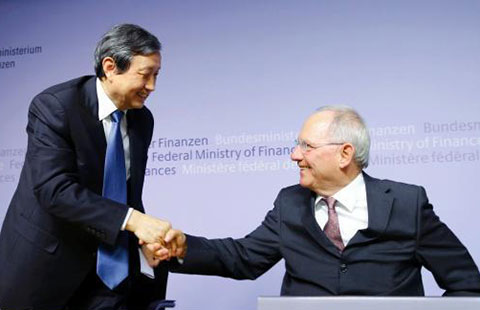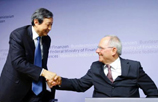Caution and commitment in Government Work Report
By Louis Kuijs (China Daily) Updated: 2015-03-06 08:22There is concrete language in the report on plans to simplify economic regulation, reduce red tape, reduce the administrative burden and regulation with regard to investment, improve access for private sector investment, and encourage the participation of "non-government" investment in key projects.
The government also commits to further concrete progress on pricing reform, "significantly reducing the number of ... goods and services for which prices are set by the government" and to pursuing pricing reform in electricity, water and other resources in the context of energy conservation and environmental protection.
In the area of financial and monetary reform, the language also suggests continued progress, reflecting a mandate to move further. In addition to the traditional commitment to "further liberalize interest rates", the addition that the government will also "improve the central bank's framework for their regulation" is welcome. The report also states that "a deposit insurance system will be established".
The language on the exchange rate has evolved from "expanding the RMB's floating range" last year to "allowing the RMB to float more freely". The commitment to make progress with convertibility of the capital account and RMB internationalization remains.
On the other hand, as noted, the approach remains cautious in reform areas where the political economy is more difficult, such as in the case of intergovernmental fiscal relations, rural land reform, and SOE-related reforms.
Nonetheless, the report also makes a commitment to "solve tough issues in urbanization", including "promptly implementing reforms to the household registration system and relaxing controls over the transfer of household registration". Indeed, there is an increasingly concrete commitment on "ensuring migrant workers can become urban citizens".
The author is a senior economist at the Royal Bank of Scotland.
- Israel requests to join Asian Infrastructure Investment Bank
- Chinese stocks rebound on April 1
- China, the West in Africa: more room for cooperation than competition
- Nanjing cuts taxi franchise fees
- Air China increases flights to Milan, Paris
- JD.com raises delivery charges
- Veteran corporate strategist upbeat about China economy
- L'Oreal China sales revenue up 7.7% in 2014

















